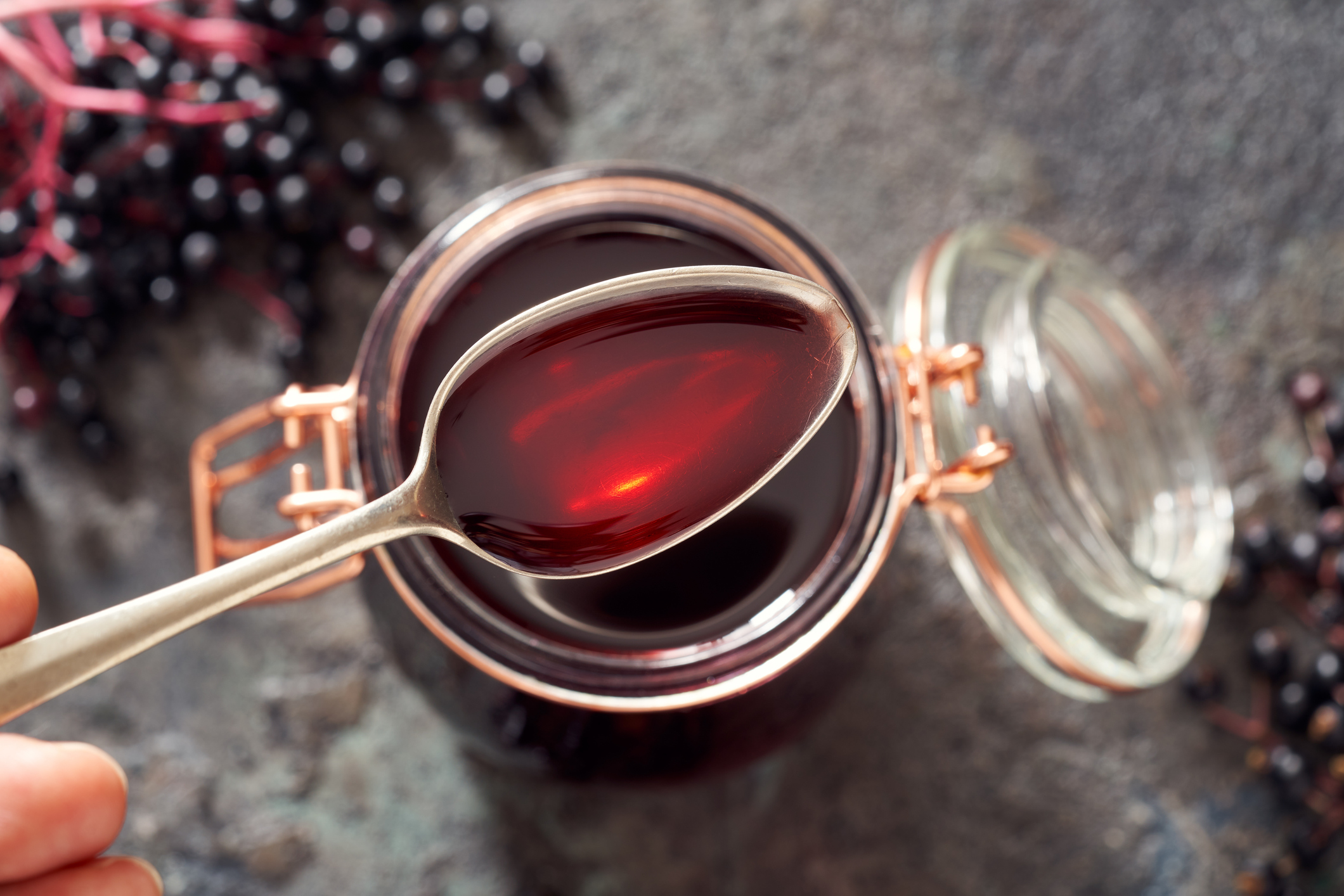

Are you getting enough berries in your diet? There are a lot of good reasons to…
There’s the bone density berry that beats back bone loss…
There’s the one that works for a better brain and blood pressure…
And the berry that improves heart and blood vessel function — in 30 days!
Then there’s the elderberry — best known as a natural flu remedy.
The secret to the elderberry’s anti-viral power lies in its high concentration of anthocyanins, a group of deep red, purple, and blue pigments that give berries their rich colors.
They also contain quite a lot of vitamin C — just one cup accounts for 57% of the recommended daily value.
The anthocyanins in elderberries work to fight free radical damage and boost your immune system in two ways:
- They shield your immune cells so that they can protect you
- They promote white blood cell production to fight off infection
And now a Washington State University-led study says elderberries have powerful benefits for weight management and metabolic health — thanks to those very same anthocyanins…
Elderberries improve metabolism and burn fat
“Elderberry is an underappreciated berry, commercially and nutritionally,” said corresponding author Patrick Solverson, an assistant professor in the Washington State University Elson S. Floyd College of Medicine’s Department of Nutrition and Exercise Physiology. “We’re now starting to recognize its value for human health, and the results are very exciting.”
In a clinical trial published in the journal Nutrients, Prof. Solverson and team found that drinking 12 ounces of elderberry juice daily for a week causes positive changes in the gut microbiome and improves glucose tolerance and fat oxidation.
A group of 18 overweight participants consumed either elderberry juice or a placebo with similar coloring and taste, specially designed by North Carolina State University’s Food Innovation Lab, while maintaining a standardized diet.
Those who drank the elderberry juice saw the following health benefits:
- Improved gut microbiome. There was a significant increase in the amounts of beneficial gut bacteria, including firmicutes and actinobacteria, and decreased amounts of harmful bacteria, such as Bacteroidetes.
- Improved metabolism. There was a reduction in blood glucose levels by an average of 24%, indicating a significantly improved ability to process sugars following carbohydrate consumption. Insulin levels also decreased by 9%.
- Enhanced fat burning. There was a significant increase in fat oxidation, or the breakdown of fatty acids, after a high carbohydrate meal and during exercise.
“Food is medicine, and science is catching up to that popular wisdom,” Prof. Solverson says. “This study contributes to a growing body of evidence that elderberry, which has been used as a folk remedy for centuries, has numerous benefits for metabolic as well as prebiotic health.”
How to get your elderberries
Elderberries are easily found in various forms: juice, powder (which can be added to tea, smoothies, or oatmeal), lozenges and elderberry tea.
It’s important to note that you shouldn’t eat elderberries whole when raw since they contain the toxic compounds, lectin and cyanide (primarily found in the seeds, stems, and leaves), which can cause nausea, vomiting, and diarrhea.
You can cook them or buy products with cooked berries instead, including elderberry juice, tea, lozenges, syrup, or powder that can be added to foods like oatmeal.
Because elderberry may stimulate the immune system, it could interfere with medications taken to suppress the immune system. These medications include corticosteroids (prednisone) and medications used to treat autoimmune diseases. People with organ transplants should also avoid elderberry.
Sources:
Elderberry juice shows benefits for weight management, metabolic health — Eureka Alert
A one-week elderberry juice intervention augments the fecal microbiota and suggests improvement in glucose tolerance and fat oxidation in a randomized controlled trial — Nutrients
Elderberry — mtsinai.org

